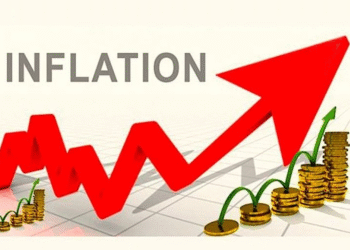
Nigeria’s Capital Market Enters a New Era as President Tinubu Signs ISA 2025 into Law
In a major step toward strengthening Nigeria’s financial sector, President Bola Ahmed Tinubu has signed the Investments and Securities Act (ISA) 2025 into law. This legislation replaces the 2007 Act and introduces a more structured and transparent framework for capital market operations, investor protection, and digital asset regulation.
With new rules designed to boost investor confidence, prevent fraud, and align Nigeria’s financial market with global standards, ISA 2025 could be a game-changer for businesses and investors alike. But what exactly is changing?
SEC Gets Stronger Powers to Regulate the Market
The Securities and Exchange Commission (SEC) remains the primary regulator of Nigeria’s capital market, but ISA 2025 expands its authority. The law gives the SEC greater power to:
- Ensure fair and efficient market operations
- Reduce systemic risks that threaten financial stability
- Regulate emerging financial instruments like digital assets
- Enforce stricter penalties for Ponzi schemes and financial fraud
Dr. Emomotimi Agama, Director-General of the SEC, described the Act as a step forward:“
“The Act enhances the regulatory powers of the SEC in a manner comparable to benchmark global securities regulators.”
These enhanced powers help Nigeria retain its “Signatory A” status under the International Organization of Securities Commissions (IOSCO) Enhanced Multilateral Memorandum of Understanding (EMMoU)—a key requirement for maintaining global investor confidence.
A Legal Framework for Digital Assets
For the first time, Nigeria’s financial laws explicitly recognize digital and virtual assets as securities. This means:
- Cryptocurrency, tokenized assets, and digital financial products will now be regulated by the SEC.
- Virtual Asset Service Providers (VASPs), Digital Asset Operators (DAOPs), and Digital Asset Exchanges must comply with SEC rules.
This move aims to reduce fraud in the crypto space, protect investors, and encourage legitimate digital asset businesses to thrive under a clear legal framework.
Reclassifying Securities Exchanges for a More Organized Market
ISA 2025 introduces a new classification for securities exchanges, dividing them into:
- Composite Exchanges – platforms where all types of securities and products can be listed and traded.
- Non-composite Exchanges – specialized exchanges that focus on a single category of security or financial product.
This distinction is expected to bring more order and efficiency to Nigeria’s financial ecosystem.
Stronger Protections Against Ponzi Schemes and Fraud
Ponzi schemes and fraudulent investment programs have caused major financial losses for Nigerians in the past. ISA 2025 introduces tough penalties, including lengthy jail terms and heavy fines, for those caught running or promoting such schemes.
The Act also mandates the use of Legal Entity Identifiers (LEIs) for all participants in capital market transactions. This global identification system will help:
- Improve market transparency
- Track suspicious financial activities
- Reduce fraud and market manipulation
Expanding Access to Capital Markets
Another key change is the expansion of eligible issuers. ISA 2025 opens up the capital market to more businesses, allowing them to raise funds through securities offerings under clear regulatory guidelines.
Additionally, the Act introduces insolvency provisions for key financial infrastructures, such as:
- Clearing Houses
- Central Counterparties
- Trade Repositories
These provisions ensure that financial markets can continue functioning smoothly even during economic downturns.
Industry Reactions: A Step in the Right Direction?
The financial industry has largely welcomed the new law.
Dr. Agama called it a “transformative step”, stating:
“By addressing regulatory gaps and introducing forward-looking provisions, the new Act empowers the SEC to foster innovation, protect investors, and reposition Nigeria as a competitive destination for investments.”
Oluropo Dada, President of the Chartered Institute of Stockbrokers (CIS), also praised the legislation:
“This Act will deepen market integrity, boost investor confidence, and expand investment opportunities. It is a major milestone in modernizing Nigeria’s capital market.”
What’s Next for Nigeria’s Capital Market?
The Investments and Securities Act 2025 sets the stage for a more transparent and investor-friendly market, but implementation will be key. Questions remain:
- Will these reforms attract more foreign investment?
- Can the SEC effectively enforce the new regulations?
- How will businesses and investors adapt to the digital asset framework?
Nigeria’s capital market is evolving, and all eyes will be on how these changes unfold in the coming months. Will this be the push Nigeria needs to become a leading investment hub in Africa? Time will tell.






